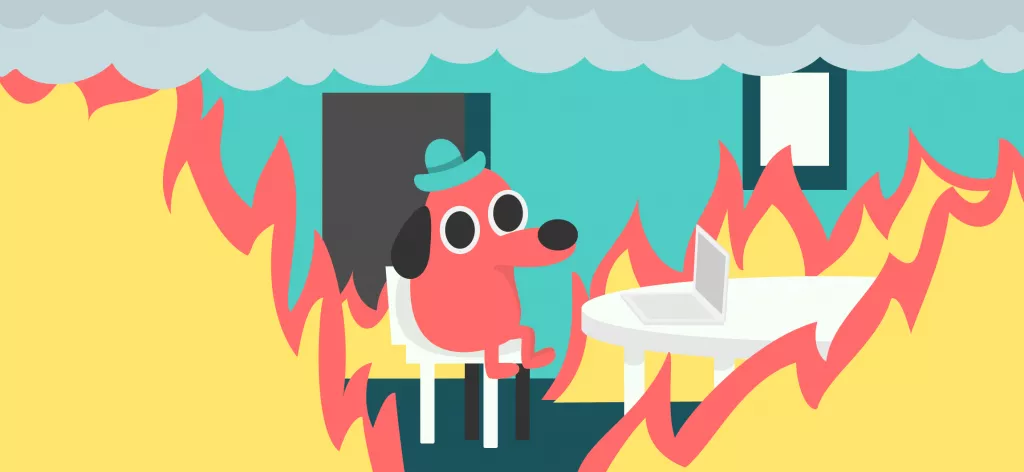Crisis Management: How To Keep Your Business On Track During The Tough Times

We Help Your Agency Reach New Heights
Switch from multiple tools and spreadsheets to one scalable agency management system.
The single best thing to combat a crisis situation? A towel.
Or so Douglas Adams would have us believe. And while we have no doubt that this is probably the best option for space travel, the Hitchhiker’s Guide to the Galaxy might not have all the answers when it comes to your business. Might not.
It Won’t Happen To Me!
As humans, we have the astounding ability to completely ignore probabilities that go against us. It is why people continue to do crazy stunts as well as take part in extreme sports. It’s also what allows us to create amazing things in the face of overwhelming odds and for business leaders to break new ground.
However, it also means that we can completely ignore the fact that bad things can (and will) happen to us. A crisis can occur in your business at the drop of a hat, and that is just a fact of life — regardless of the type, size, scope or stability of your endeavours, things can go wrong!
But… DON’T PANIC, as there are many ways to prepare for a crisis and plenty to do if (or should that be ‘when’) one hits your business.
So, I Can Plan For It?
So, I Can Plan For It?
Yes. Well, sort of. You can never truly plan for crises because of their inherently random nature. You can, however, create a crisis plan. Paradox? Maybe, but you’re going to have to do it anyway. The first step to creating a plan is finding the pressure points of your business. At the start of the COVID-19 crisis in 2020, we even gave tips on how agencies can manage recruitment during a crisis. Essentially doing one big risk assessment to see where your company is most likely to falter.
Then, using these pressure points, assess the impact that a failure will have on your business — will it affect customers? Will sales be delayed? Will you suffer fines or a tarnished reputation?

Via Unsplash: Risk assessments — not only for crisis management!
Next, you need to figure out the contingency plans that you’ll follow when things go wrong. This involves going through the resources needed, actions to be taken, and team members involved in each of the possible situations. For example, if you are handling the marketing for a brand, and suddenly that brand gets a whole heap of bad publicity, chances are some of that will fall back on you. That means you’ll need a plan in place that ties together your customer reps to talk to the client, your PR people to draw up your company’s response and possibly a whole bunch of creatives to get the brand’s image back on track. You then need to create one of those plans for all possible eventualities.
The key here is knowing who’s doing what and when, which is why time management is so important during a crisis. Moreover, it is important to know chains of responsibility, because with a solid structure and good project management, a crisis in one project doesn’t have to spread to the rest of the company.
While we don’t have an all-knowing book that talks to us or a button to turn our problems into petunias, there is tech out there that can be oh-so helpful in a crisis situation. The fewer things you have to think about during a crisis, the better, and using transparent management software like Productive to keep track of who’s doing what and when makes it simple to keep any situation under control.
Using management software helps reduce job overlap, which is disruptive during normal operations but can prove devastating during a crisis. Clear roles at clear times can help people better perform as a team rather than disparate individuals.
Take The Pressure Off The People
It is key to make sure that everyone knows what they’re doing and when, but it’s also important to ensure that employees don’t feel as if they’ve had their brains smashed out by a piece of lemon wrapped around a large gold brick — or is that a good thing? Either way, here are a few simple ways to keep stress low and morale high during a crisis.
Encourage everyone to take breaks! During a crisis, everyone can be going at a million miles an hour and feel unable to leave their laptop — let them know (and force them) to take a break, as it will help in the long run.
Lead by example and stay calm. If you are visibly stressed and out of control, this will rub off on other people. We know it’s hard, but take some deep breaths and set a stress-free precedent.
Keep people fed. Sometimes a crisis can mean pulling extra hours and staying very late. Don’t be afraid to get dinner for your employees since this is both necessary and can provide a serious morale boost.
At the end of any crisis, make sure that employees are given their due. If they know they are valued in a crisis, they will feel far better about their work during the next one.
DON’T PANIC — if it worked for Arthur Dent, it will work for you. The most important thing during a crisis is not panicking as this causes unnecessary stress for everyone!
In the paraphrased words of Mr. Adams, a crisis situation can feel like trying to convert Fahrenheit to Centigrade in your head while your house is burning down. But, it doesn’t have to be that way if you make a plan, equip yourself with the tech-tools needed to carry it out smoothly, and put steps in place to keep your staff happy.



